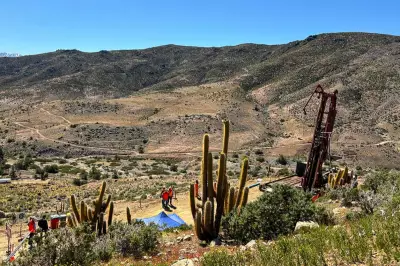
Mining giant BHP has been slapped with nearly $100,000 in penalties and compensation after the Federal Court found the company unlawfully forced dozens of coal miners to work through Christmas and Boxing Day in 2019.
Landmark Ruling for Mine Workers
The Federal Court delivered its decision on Tuesday, ordering BHP to compensate 85 employees who were required to work the 2019 Christmas holidays without being offered a reasonable right to refuse shifts. The workers, employed by BHP's labour hire arm Operation Services at the Daunia mine near Moranbah in central Queensland, will receive individual payments ranging from $800 to $2400.
BHP was also penalised $15,000, which it must pay directly to the Mining and Energy Union (MEU) as part of the comprehensive ruling that comes just before the start of this year's festive season.
Heartbreaking Personal Sacrifices
The court heard emotional accounts from workers who suffered significant personal distress due to the mandatory holiday shifts. One employee described being "wracked with guilt" after missing Christmas with his elderly, ill mother whom he had been caring for following her pelvis fracture. Tragically, his mother passed away in March 2020, leaving him "devastated to have missed the opportunity to spend her last Christmas together."
Another case involved a single mother who had to pay $500 to someone from her children's drama class to babysit on Christmas Day. She found "it devastating leaving her girls, who were distressed and asked her not to go" but had no family support available.
Systemic Failure in Holiday Rostering
The legal breach occurred when Operation Services informed 152 workers from a pool of 168 employees that it "required" them to work on both Christmas and Boxing Day 2019, with no additional monetary benefits offered. While the company later told staff in mid-December they could raise "special circumstances" for consideration, it accepted only nine requests and rejected all others.
Justice Darryl Rangiah found that OS had contravened the Fair Work Act 2009 by issuing a "unilateral command" rather than making a proper request. "I infer that if OS had made a request, instead of imposing a requirement, each of the 85 employees would have sought to raise reasonable grounds for refusing to work," Justice Rangiah stated in his judgment.
The court emphasised that the legislation requires only a reasonable basis for refusal, not special circumstances, marking a crucial distinction in public holiday work rights.
Industry Implications and Response
MEU Queensland President Mitch Hughes acknowledged that while the compensation amounts are "small change" to a company of BHP's size, the ruling sends a powerful message to the mining industry. "Mining companies traditionally respected the right of workers to spend time with friends and family at important times of the year like Christmas, but this respect has been eroded by the pressure of 24-hour production," Hughes noted.
Employment law expert Andrew Jewell highlighted the broader implications, stating that employers cannot issue blanket directions just to keep making money and would need another basis, such as an emergency, to justify public holiday work requirements.
BHP has since changed its procedures, now properly requesting rather than requiring public holiday work and giving employees genuine opportunities to refuse with proper consideration of their reasons. The company stated it will comply with the court's decision, noting that "mining operates around the clock, every day of the year, to provide the materials the world needs."
The Daunia mine has operated 365 days annually since opening in 2013, but this landmark ruling ensures that production demands cannot override workers' fundamental rights to reasonable holiday time with their families.





